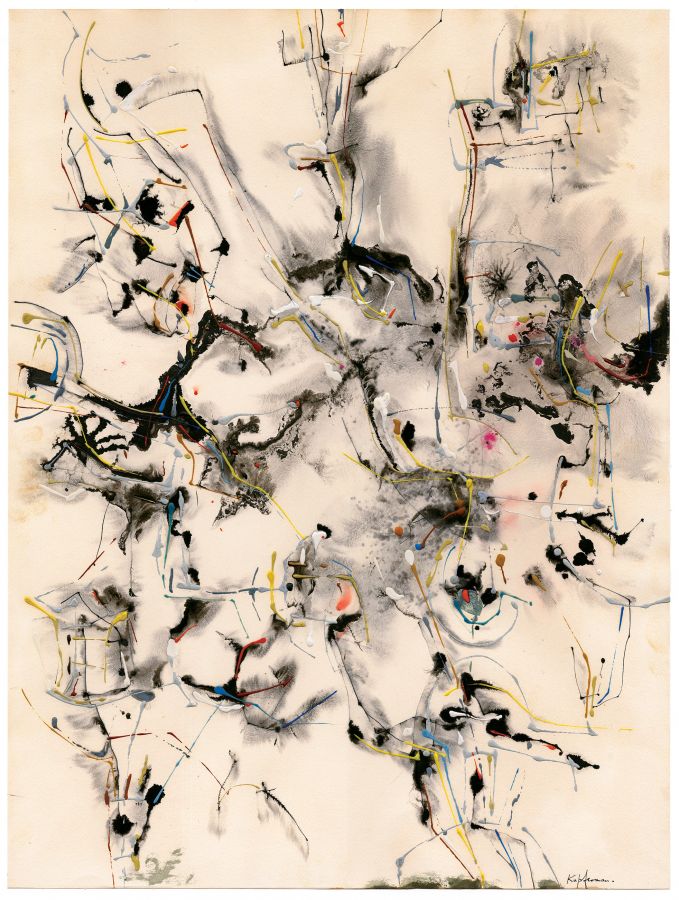Signed Kupferman in ink, lower right sheet edge. Signed and titled (twice) in ink, verso, and annotated #ED:742.C (the artist’s inventory number) March 1954 and Lucretius, in the artist’s hand.
Image size 25 3/8 x 19 1/4 inches (645 x 489 mm).
Ink and encaustic on heavy, cream wove watercolor paper, with fresh colors, the image extending to the sheet edge. Slight toning to the sheet verso, otherwise in very good condition.
ABOUT THIS WORK
De rerum natura (usually translated as On the Nature of Things) is a philosophical epic poem written by the Roman poet Lucretius in Latin around 55 BCE. The poem was lost during the Middle Ages, rediscovered in 1417, and first printed in 1473. Its earliest published translation into any language (French) did not occur until 1650; in English — although earlier partial or unpublished translations exist — the first complete translation to be published was that of Thomas Creech, in heroic couplets, in 1682. A pioneering figure in the history of philosophical poetry, Lucretius has come to be our primary source of information on Epicurean physics, the official topic of his poem. Among numerous other Epicurean doctrines, the atomic ‘swerve’ is known to us mainly from Lucretius’ account of it—the unpredictable swerve of atoms, according to Lucretius, provides the "free will which living things throughout the world have". His defense of the Epicurean system is deftly and passionately argued, and is particularly admired for its eloquent critique of the fear of death in book 3. Lucretius' work would have had a special resonance with Kupferman who in his expressionist explorations was concerned with the mystery and essence of life itself.



